第35章 LETTER VI(4)
In my solitary explorations I was not mobbed or rudely treated in any way. The people were as gentle and inoffensive in their manners as the Japanese, without their elaborate courtesy and civilized curiosity.
Having seen all I could see, I turned shipwards, weary, footsore, and exhausted; my feet so sore and blistered, indeed, that long before I reached a gharrie I was obliged to take off my boots and wrap them in handkerchiefs. The dust was deep and made heavy walking, and the level straightness of a great part of the road is wearisome. Overtaking even at my slow rate of progress a string of creaking buffalo carts, I got upon the hindmost, but after a little rest found the noise, dust, and slow progress intolerable, and plodded on as before, taking two and a half hours to walk three miles. About a mile from Cholen there is an extraordinary burial-ground, said to cover an area of twenty square miles. (?) It is thickly peopled with the dead, and profuse vegetation and funereal lichens give it a profoundly melancholy look. It was chosen by the Cambodian kings several centuries ago for a cemetery, on the advice of the astrologers of the court. The telegraph wire runs near it, and so the old and the new age meet.
On my weary way I was overtaken by a young French artillery officer, who walked with me until we came upon an empty gharrie, and was eloquent upon the miseries of Saigon. It is a very important military station, and a sort of depot for the convicts who are sent to the (comparatively) adjacent settlement of New Caledonia. A large force of infantry and artillery is always in barracks here, but it is a most sickly station. At times 40 per cent. of this force is in hospital from climatic diseases, and the number of men invalided home by every mail steamer, and the frequent changes necessary, make Saigon a very costly post. The French don't appear to be successful colonists. This Cochin Chinese colony of theirs, which consists of the six ancient southern provinces of the empire of Anam, was ceded to France in 1874, but its European population is still under twelve thousand, exclusive of the garrison and the Government officials. The Government consists of a governor, aided by a privy council. The population of the colony is under a million and a half, including eighty-two thousand Cambodians and forty thousand Chinese. According to my various informants--this young French officer, a French nun, and a trader of dubious nationality, in whose shop I rested--France is doing its best to promote the prosperity and secure the good-will of the natives. The land-tax, which was very oppressive under the native princes, has been lowered, municipal government has been secured to the native towns, and corporate and personal rights have been respected. These persons believe that the colony, far from being a source of profit to France, is kept up at a heavy annual loss, and they regard the Chinese as the only element in the population worth having. They think the Anamese very superior to the Cambodians, from whom indeed they conquered these six provinces, but the Cambodians are a bigger and finer race physically.
I do not think I have said how hideous I think the adult Anamese.